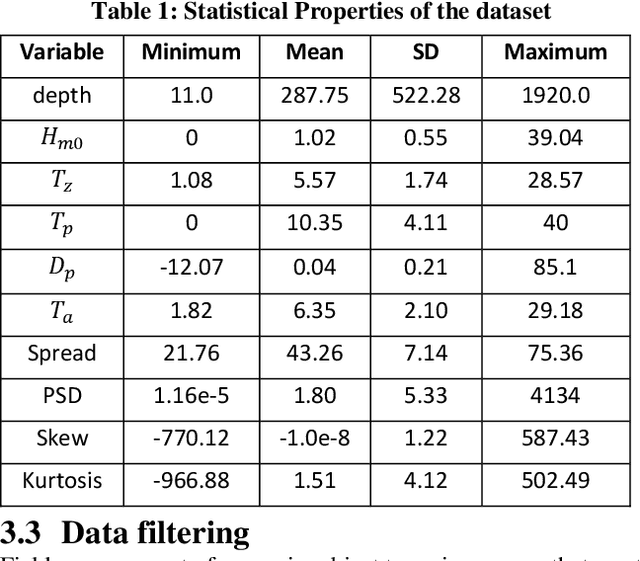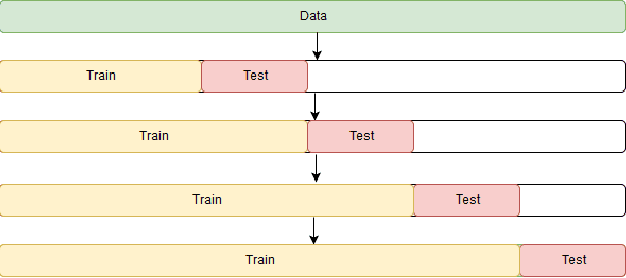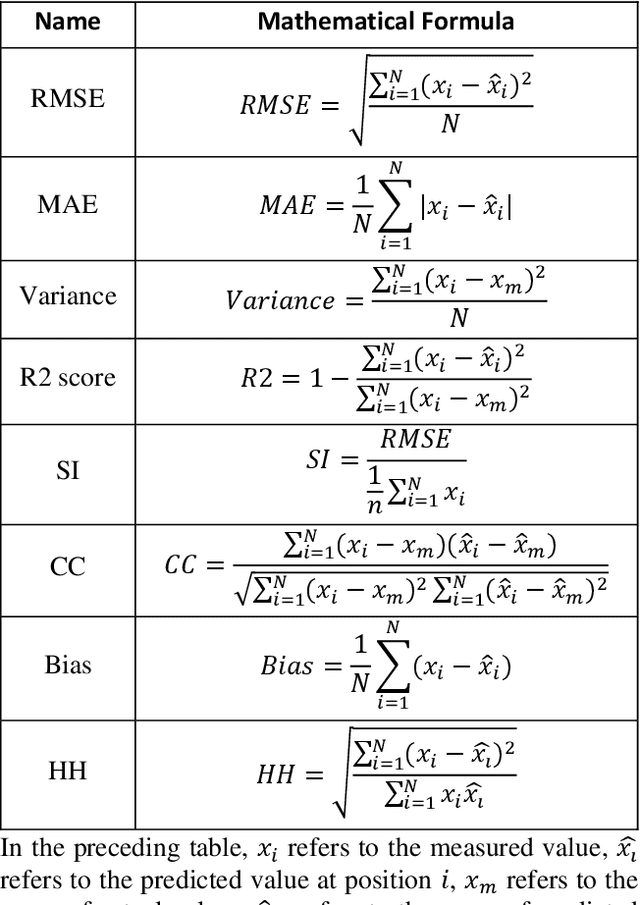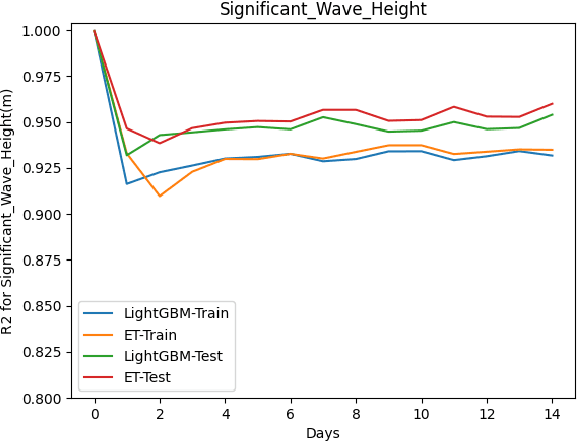Forecasting Significant Wave Heights in Oceanic Waters
Paper and Code
May 18, 2021



This paper proposes a machine learning method based on the Extra Trees (ET) algorithm for forecasting Significant Wave Heights in oceanic waters. To derive multiple features from the CDIP buoys, which make point measurements, we first nowcast various parameters and then forecast them at 30-min intervals. The proposed algorithm has Scatter Index (SI), Bias, Correlation Coefficient, Root Mean Squared Error (RMSE) of 0.130, -0.002, 0.97, and 0.14, respectively, for one day ahead prediction and 0.110, -0.001, 0.98, and 0.122, respectively, for 14-day ahead prediction on the testing dataset. While other state-of-the-art methods can only forecast up to 120 hours ahead, we extend it further to 14 days. This 14-day limit is not the forecasting limit, but it arises due to our experiment's setup. Our proposed setup includes spectral features, hv-block cross-validation, and stringent QC criteria. The proposed algorithm performs significantly better than the state-of-the-art methods commonly used for significant wave height forecasting for one-day ahead prediction. Moreover, the improved performance of the proposed machine learning method compared to the numerical methods, shows that this performance can be extended to even longer time periods allowing for early prediction of significant wave heights in oceanic waters.
 Add to Chrome
Add to Chrome Add to Firefox
Add to Firefox Add to Edge
Add to Edge